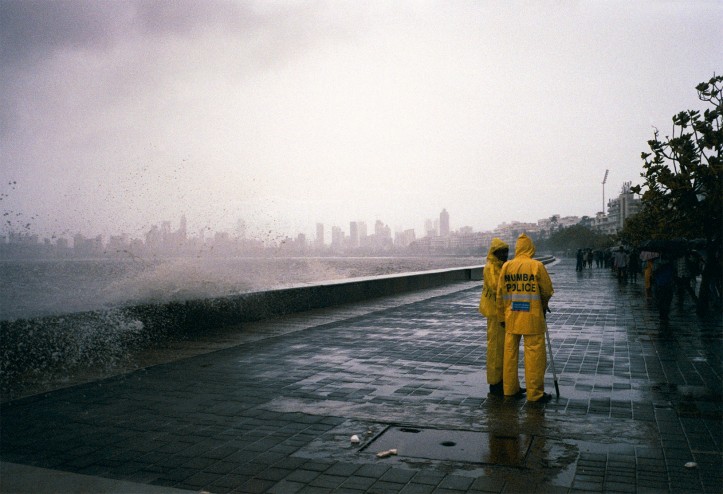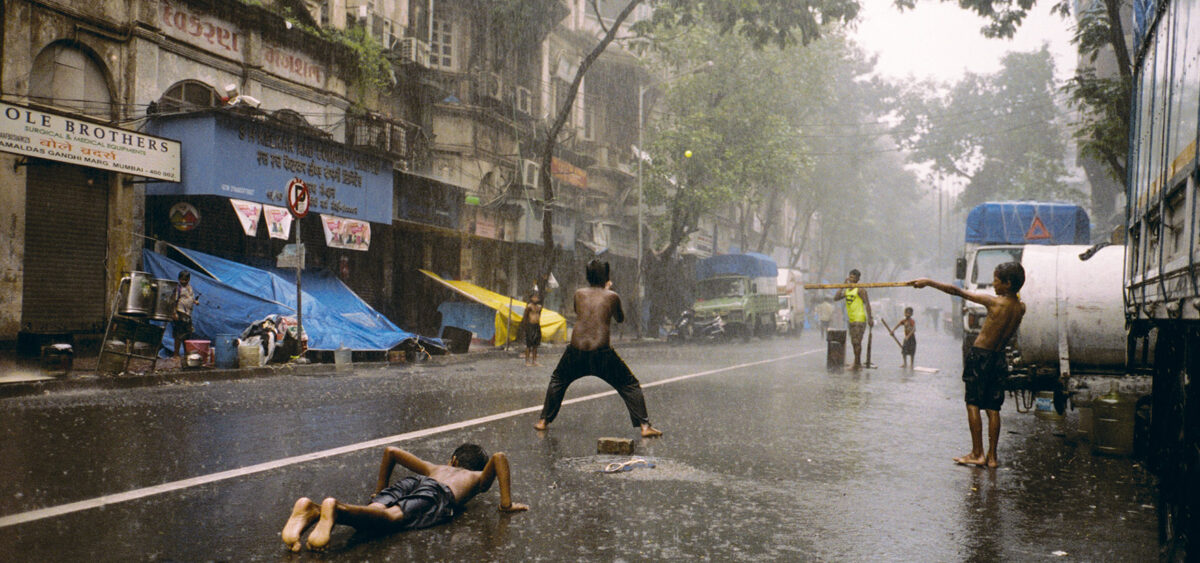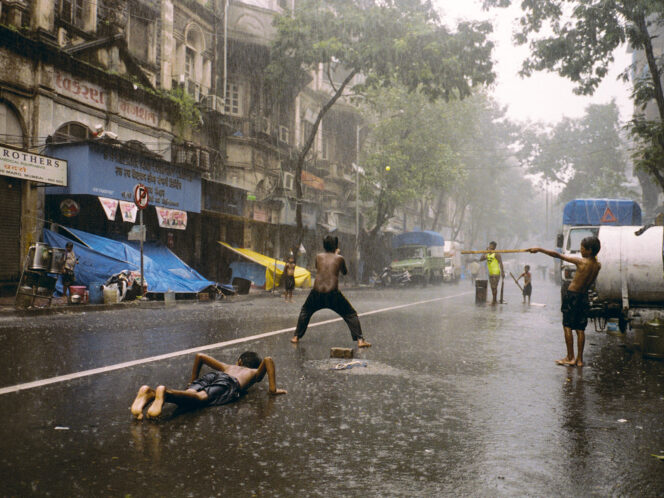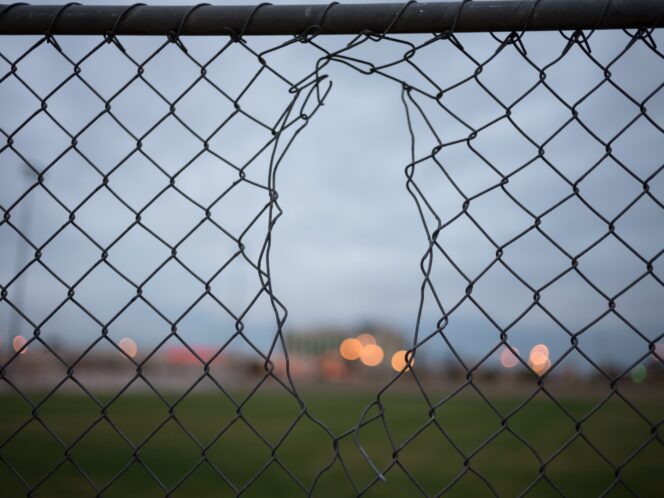
Before the monsoon downpours begin to fall, mildew appears – the omnipresent sister of dampness that invades every corner. It heralds long months during which the gods flood humans with rain. In India, the season of abundance coincides with the time of juicy mangoes and great fear. Water will decide everything.
It’s still dark, an hour before dawn. The night, dense with countryside blackness, will start thinning around 6am. There will be no sunrise, just an uneventful transition from the darkness into murky grey daylight. The night will retreat without notice, rushed out with the first cups of tea so hot they burn hasty lips, chased away with street vendors’ shouts, muezzin calls. It will be dispelled by the tinkling bells of the morning puja prayer rituals with their incense, garlands and little flames, performed in corner shops and on street markets. It will be gone just before the first customers bless the day’s business with their presence.
All this will come eventually, but not just yet. Now, the bullocks are marching through the wet darkness. They are white, with stocky humps and horns as long as swords. They walk in the middle of the road, jingling their bells, pulling two-wheeled wooden carts. On each cart, the driver is crouching, huddled up in a shawl to shield himsealf from heavy raindrops and from the cold crawling down from the mountains. There are more passengers on those carts: skinny and small-bodied; limp, fast asleep with cracked heels tucked up close to their thighs. Every cart carries a wooden plough, fastened with a piece of rope or weighted down with heavy sacks. They drive slowly along the way that took them here from Hospet, the city in Karnataka district in India. They are not coming together, but merely all at the same time, which makes the carts look like a sweeping procession clambering toward the rice fields covered with water and the crisp green mist of seedlings. The colour is so young and bright it seems to glow when the first rays of sunrise lick fresh new leaves.
The closer they get to the river, the shorter the column becomes. One by one, the carts turn right and left into the narrow embankments that divide the fields. The bullocks slow down obediently. They leave the asphalt track and walk onto soggy paths poking out of pools of water sprinkled thickly with young green rice saplings. From dawn till dusk – that’s how long these men and beasts will work. They will spend their day wading in water that’s almost knee-high, finding their way across sheets of heavy rain. The men will protect their heads from the rain with ripped burlap sacks that used to carry flour or onion. They will pull their cotton lungis up to their knees, giving the rain nothing but their lean, muscular shins. Women will wrap their colourful saris tightly around their hips and bend their bodies low. They will spend long hours in this forward fold, carrying rice saplings across the field one after another, their backs whipped with heavy raindrops.

The animals will walk across the murky waters, slashed with fresh water coming from the clouds and carried by gusts of rain. They will walk unhurriedly, their heavy lids half-closed, across the plough-ripped mud. The rain will pass, but before their skin dries, another downpour will come. And so it will go on and on for the next four months, from June to September. During that time, everyday life is controlled by monsoons.
Rivers flowing from the skies
In early Hindu mythology, rain was represented by Indra – the most important of all gods, the dispenser of storms. Brave and militant, Indra would use a lightning bolt as a weapon. He fought Asuras, negative anti-deities, and defeated the dragon named Vritra – a demon of drought; guilty of holding back the rains and hiding the sun high in the sky. Indra’s strength came from consuming a potion called soma. He was accompanied by Rudras, who rode the clouds and unleashed storms. Indra is an omnipresent deity: one of his names is the Thousand-Eyed God.
Thousands of raindrops fall with no prelude and with no mercy. There is no foreplay, no cautionary drizzle, no chance to find shelter. Just a few drops in, heavy masses of water cascade down in massive deluges. As if Indra was pouring down whole pitchers at once; as if the long dreadlocks of Shiva were dripping with








